In this week’s column, an interview with Poet Kyle Harvey on what it’s like to be a poet and why he turned his back on the music world. It’s in this week’s issue of The Reader or online right here, and since this tangentially involves music, you can read it below.
* * *
Over the Edge #94: The Life of a (Real) Modern-Day Poet
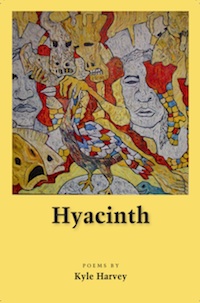
Hyacinth (Lithic Press, 2013)
Just the word “poet” makes some people’s eyes roll in exasperation and disbelief. “Who does he think he is, calling himself a poet? Is he serious?” To those same people, anyone who would classify himself as a poet is very likely a self-involved, deluded, pretentious asshole who thinks he has all the answers and can even make those answers rhyme. Either that, or he’s a university professor.
The only problem with that theory is that Kyle Harvey is a poet, and he’s anything but a pretentious asshole.
He used to be a musician, the kind that plays rock ’n’ roll and folk songs of his own writing. Once upon a time when he lived in Omaha, Harvey was known to stand on stage with his guitar behind his rather bushy beard and sing painful, personal love songs designed to draw tears from your eyes (and often succeeded). He also played in a rock band that no longer exists called It’s True, which released records and drove around the country in a van playing concerts in night clubs.
All of that was a long time ago. These days Harvey lives in picturesque Fruita, Colorado, a town of around 12,000 located just outside of Grand Junction on the western slope of the Rocky Mountains. He and his wife, Veronica, live a quiet life raising kids (with twins on the way), hold down day jobs and are part of a community where Harvey recently was elected to the City Council.
But on top of all that, Harvey writes poems, like this one from his latest “chap book”:
Tulips
There’s an overcoat of cottonwood,
on a quilted field in Holland.
Words spill from one pocket
and rhythms from the other.
Down into the soil they seep,
Cupping seeds in their hands
and sprouting the promise of bulbs
from which colorful miracles leap.
“I’m only a poet when I write a poem,” Harvey explained. “The rest of the time I’m just an average dude.”
How does one go from performing rock songs in front of an audience to quietly writing at the foot of a mountain? Harvey says at some point he “fell out of love” with being a musician and the pressures that came with it.
“Music just doesn’t hold as much value as it used to,” Harvey said. “I think it stopped a long time ago, well before I started stepping back from it. I got burned out on the formula of writing songs. Poetry seemed a little bit more open-ended and felt a little more free.”
Harvey said he also didn’t feel fulfilled playing rock shows. “The fulfillment came from the process of creating something,” he said. “With the band, the value for me was hanging out with my friends and traveling to different cities, but the shows and the grind of it was not as exciting or fun. I don’t crave being on stage in front of people, I almost like not being on stage — which is weird considering how long I played music.
“There doesn’t seem to be much to a poet’s lifestyle, like there is to a musician’s.” he added. “Poetry is solitary, you do it in solitude.”
Well, except for when he takes part in poetry readings, but even then all he has to do is read four or five poems. “Then you get to hang out with people who read books,” he said. “I’d rather read a book than listen to an album.”
What? Sacrilege!
Harvey said he began writing poetry back in his musician days. After he moved to Colorado one of his poems, “Hyacinth,” won the 15th Annual Mark Fischer Poetry Prize awarded by the Telluride Arts Council.
Shortly after that, friend and fellow poet Danny Rosen suggested Harvey collect his poems — many of which had been published in small poetry journals and magazines — and put out a book. Named after that award-winning poem, Hyacinth was published by Rosen’s Lithic Press. Harvey calls it a “chap book,” which he said is the term for books under 42 pages that use staples for the binding.
Unlike the music business, which seems to thrive on album sales, there isn’t a lot of pressure to sell copies of his chapbook. Harvey said Rosen would love to at least break even, but “in his mind, the most important part (of the process) is creating the artifact, the beautiful book,” Harvey said. “(Rosen) would tell you he already considers it a huge success, which is neat to hear.”
So what’s the pretentious part in all of this?
“There’s a misperception that (poetry) is some sort of pretentious high art. It’s not like that at all,” Harvey said. “What I’ve learned is that the poetry world to me doesn’t seem nearly as pretentious as the music world. Even the biggest, most widely read, best-selling poets — and there’s not a whole lot of them — are still nothing like rock stars. There’s a purity to it that maybe comes from the fact that there’s not much of an audience for poetry, and from the lack of exchange of money. There’s not even a whole lot of people who have been to a poetry reading. They’re almost considered taboo.”
And now you can take part in this taboo ritual when Harvey presents some of his work at a poetry reading Feb. 24 at the Petshop Gallery, 2727 No. 62nd St. in Benson. Joining him will be Greg Kosmicki (the 2000 and 2006 recipient of the Nebraska Arts Council’s Merit Award), Paul Hanson Clark (co-founder and operator of the poetry studio SP CE in Lincoln), and Omaha musician and novelist Michael Trenhaile.
And if you’re wondering what Harvey sounded like on stage, well you’ll get your chance to find out when he once again slings on a guitar as the opener at the Brad Hoshaw and the Seven Deadlies album release show Feb. 21 at The Waiting Room. No one said poets can’t sing, too.
Over The Edge is a weekly column by Reader senior contributing writer Tim McMahan focused on culture, society, music, the media and the arts. Email Tim at tim.mcmahan@gmail.com.
First published in The Reader, Feb. 13, 2014. Copyright © 2014 Tim McMahan. All rights reserved.
* * *
Tonight at O’Leaver’s, Shreveport band Ghost Foot plays along with locals Those Far Out Arrows. Whenever I see shows like this listed, I wonder how they got booked. Ghost Foot has almost no web presence. They have a Facebook page with 375 likes with an “about” section that has almost no information about the band. They have a bandcamp page but no formal releases. Beyond that, nothing. And yet, here they are hundreds of miles away from home on tour.
Somehow they found O’Leaver’s, or O’Leaver’s found them and they booked a show for tonight. Maybe they’re friends with the TFOA guys, who also only have a Facebook page and a Reverb Nation page. I think it’s safe to say this is the punk underground at its finest. $5, 9:30 p.m.
* * *
Read Tim McMahan’s blog daily at Lazy-i.com — an online music magazine that includes feature interviews, reviews and news. The focus is on the national indie music scene with a special emphasis on the best original bands in the Omaha area. Copyright © 2014 Tim McMahan. All rights reserved.
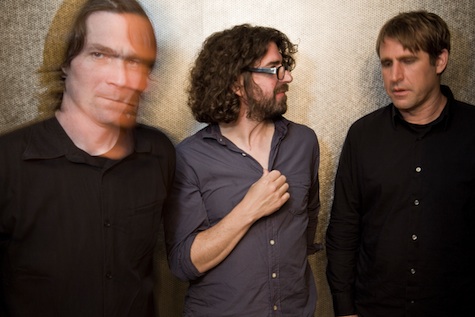

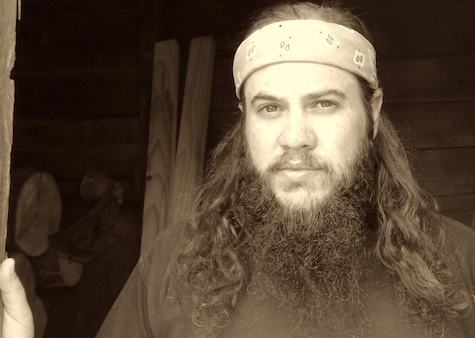

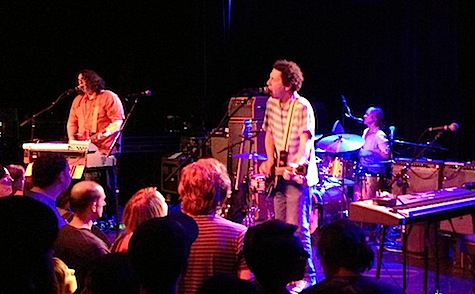
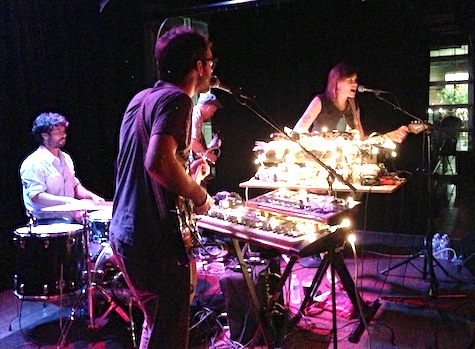
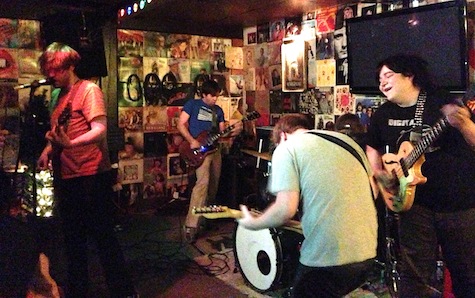
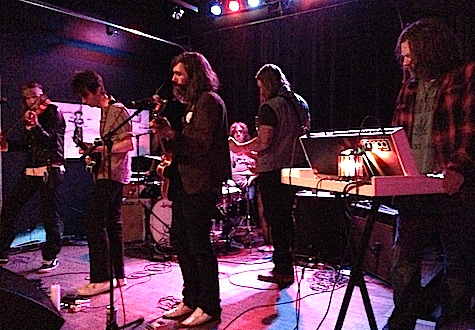
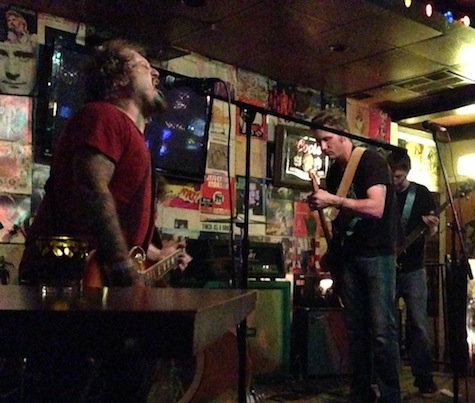
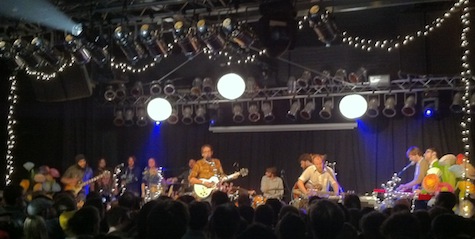
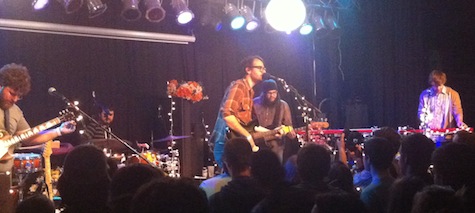
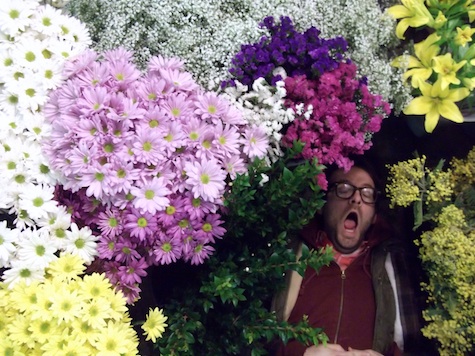
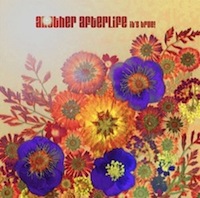
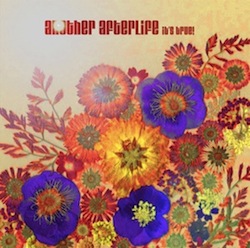
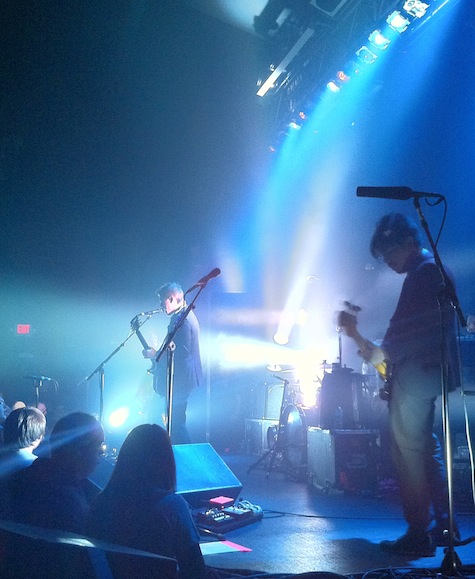
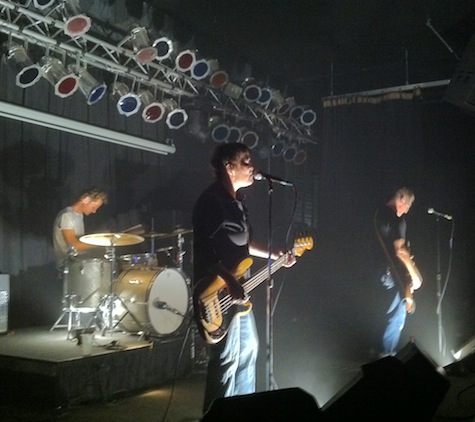
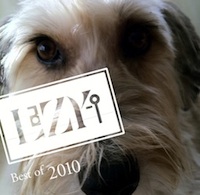
Recent Comments